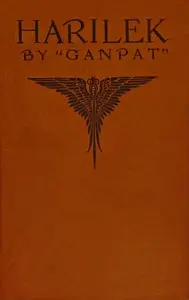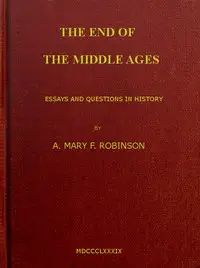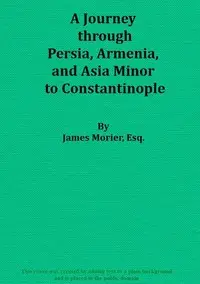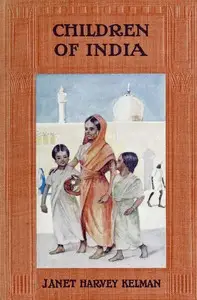"Harilek: A Romance" by “Ganpat” is a novel written in the early 20th century. Set against the backdrop of Central Asia, the book seems to weave a tale of adventure and discovery intertwined with romance, featuring a central character named Harry Lake, who appears to have a keen sense for exploration and a longing for life beyond the ordinary. The narrative hints at themes of exploration, romance, and the quest for hidden truths, involving elements such as buried cities and encounters with mythical beings. The opening of the novel introduces readers to Harry Lake, a soldier drawn into a life of adventure after years of military service. As he reflects on his choice to explore Central Asia instead of returning to England, he reminisces about the friends he has met along the way, notably John Wrexham, with whom he discusses a fantastic journey based on Wrexham’s great-great-uncle’s diary. Wrexham reveals a tale of a mysterious burial site in the desert and a dead white man that connects to ancient Greek heritage. This sparks the desire for Lake and his companions to embark on an expedition to uncover the hidden secrets of the Gobi Desert, blending elements of romance, adventure, and exploration into the narrative's foundation. (This is an automatically generated summary.)

Harilek : $b A romance
By Martin Louis Alan Gompertz
"Harilek: A Romance" by “Ganpat” is a novel written in the early 20th century. Set against the backdrop of Central Asia, the book seems to weave a tal...
Martin Louis Alan Gompertz was a British soldier and writer, born in India, also known by the pseudonym of 'Ganpat', which was the nearest his Indian troops could get to pronouncing 'Gompertz'. Ganpat is another name for the elephant god Ganesh. He started his writing career with articles for Blackwood's Magazine on his service in East Africa during the First World War. He wrote many adventure stories in the style of H. Rider Haggard, though most of Ganpat's stories are set in the Himalayas. He was an Anglo Indian soldier, and his stories reflect his military and frontier background. He retired in 1939 with the rank of Brigadier, ending his days in the town of Chagford, on the edge of Dartmoor, where he could pursue his passion for fishing.













